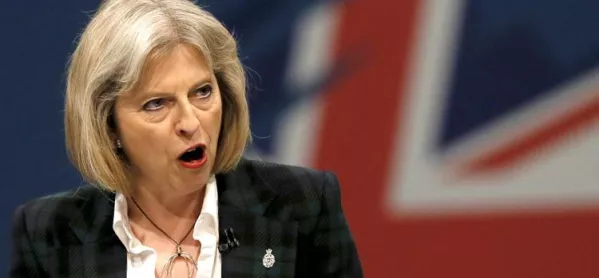The roll call of opponents of Theresa May’s grammar school plans is gathering momentum (although perhaps that’s an unfortunate word to use in the current climate). The rollcall is more impressive in educational terms than the celebrity line-up year after year for Royal Variety Performances.
Just look at the last weekend. First, former Conservative education secretary Nicky Morgan joined forces with Lucy Powell, former Labour shadow education secretary, and Nick Clegg, former Liberal Democrat deputy prime minister, in penning a joint letter opposing the plans. Then former Eton headmaster Tony Little waded in against it arguing that selection is a policy whose time has gone.
You could argue they are all former holders of office - yesterday’s men and women - but that would be clutching at straws, considering new Ofsted chief Amanda Spielman and head of education at the Organisation for Economic Co-operation and Development Andreas Schleicher have also voiced reservations about them.
According to speculation in Conservative circles, there are at least 30 of their MPs lined up to oppose it, too.
All of which should suggest to Ms May - who undoubtedly does not possess more wisdom than the combined nous of those ranged against her - that the time has come to realise the game is up and throw in the towel.
In fact, you could argue that a bunker mentality already exists at Number 10 over the plan - one of the most prominent leaks last week suggested Downing Street was considering compelling all grammar schools - existing and new - to offer a quota of places to disadvantaged pupils, ie, by letting them in on a reduced pass mark, to make the scheme more compatable with social mobility aspirations.
Now, when the King Edward Foundation schools in Birmingham adopted this proposal 18 months ago, I must confess I welcomed that idea - but that was in the context of making existing grammar school admissions policies fairer and in the almost certain knowledge that even were a Jeremy Corbyn-led Labour administration to come to power, existing grammar schools would not be compelled to end selection. It would, I argued, make the Birmingham schools more palatable in the wake of statistics that showed only 2.6 per cent of grammar school pupils were entitled to free school meals compared to around 16 per cent over the country as a whole. More palatable but not right.
I don’t know whether Downing Street will eventually back the idea of quotas but the obvious outcome if they do is that they will upset the traditional supporters of selection. How will the middle classes in the leafy suburbs react if their children stand less of a chance of getting into grammar schools? (Okay, they will probably send their children to private schools instead - but they will be lined up in the opposition camp to the proposals.) In the long run, then, Downing Street could find almost everybody lined up to oppose their plans. Not only would Theresa May have achieved the almost miraculous feat of uniting the Labour party (at least around this one issue) but the whole country as well at a time when divisions over Brexit cut deep.
Some sources last week were suggesting that Ms May could postpone her grammar school plans until after the election. It would add a certain amount of legitimacy to them if she could could get them in the Conservative manifesto and then accepted by a popular vote in the country at large. In that case, the battle would then transfer to the Conservative party manifest compilers as opponents would have to fight to keep them out of it.
The more honest thing to do, though, would be to drop them in the light of the overwhelming opposition - and evidence that they are just plain wrong. Perhaps they could be replaced by a return to an emphasis on specialist secondary schools? However, if the Government carries on with the proposals, it certainly now looks as though ministers are heading for defeat.
Richard Garner was education editor of The Independent for 12 years, and before that news editor of Tes. He has been writing about education for more than three decades.
To read more columns by Richard, view his back catalogue
Want to keep up with the latest education news and opinion? Follow Tes on Twitter and like Tes on Facebook




